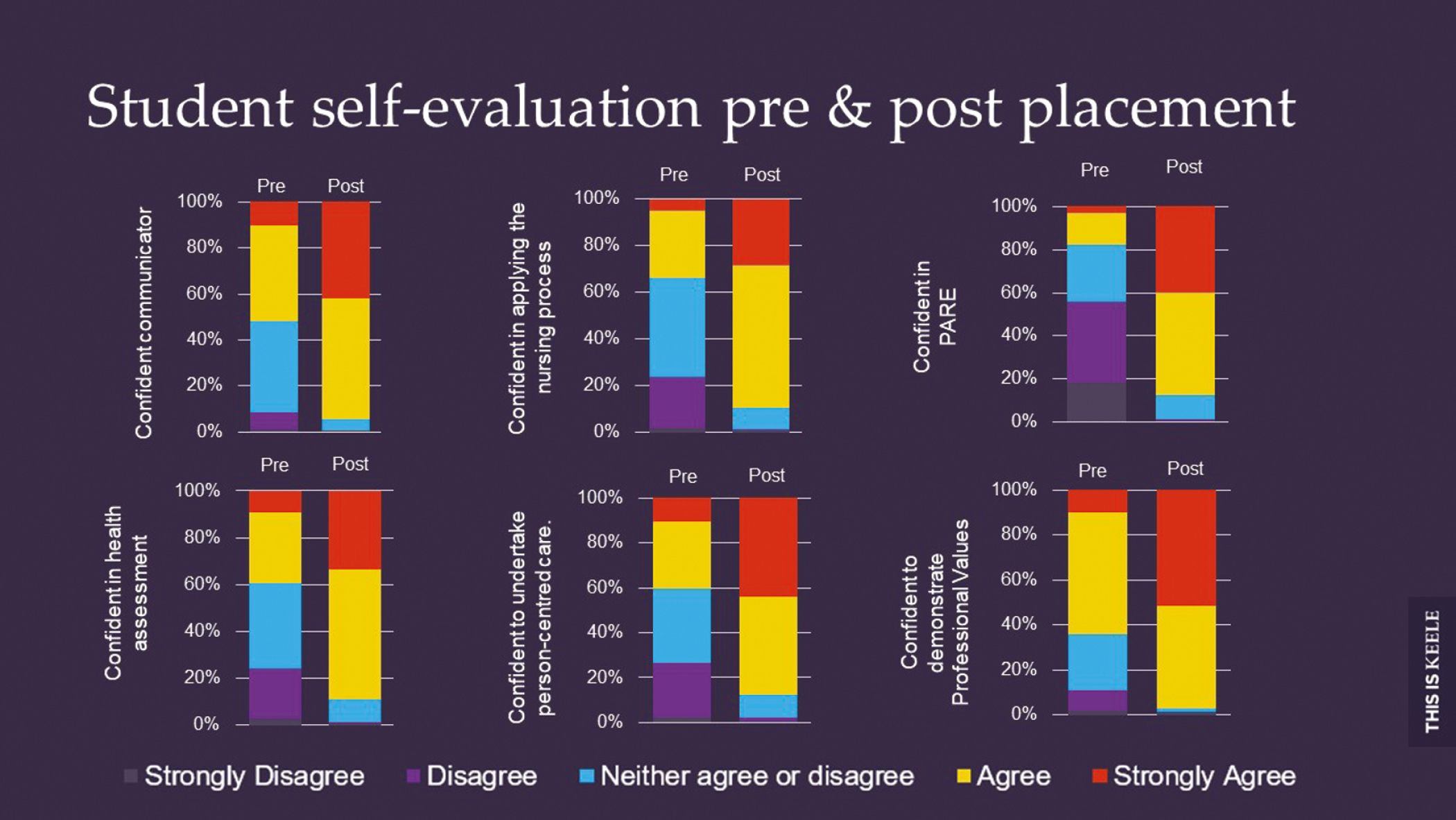
NHS England’s workforce plan details ambition to almost double the number of adult nurse training places by 2031. Universities across the UK are seeing record number of student admissions however, student nurse attrition remains a concern. An average attrition rate across all institutions in the UK is 24% [1]. Transitioning to university life requires students to adapt and integrate, formulating social connections that help foster a sense of belonging [2]. Nursing practice placement can cause feelings of nervousness and anxiety due to the anticipation of unfamiliar environments and responsibilities.
Research Question: “Can simulated practice within university curriculum effectively acclimate students to clinical environments, instilling requisite responsibilities whilst nurturing community building and safeguarding psychological well-being?”
A collaborative approach was undertaken to develop the simulated practice. This involved students, academic leads and practice partners. Face-to-face meetings and on-line surveys captured indispensable elements of the curriculum. The timetable provided comprehensive and diverse opportunities for students to engage in a wide range of simulated clinical practices including: patient history taking, personal cares, A-E assessments, manual handling, patient assessments and emergency care. A scaffold approach was used giving students individual elements that would build momentum towards the grand finale ‘day in the life’ working as student nurses on a simulated ward.
A four-week programme was delivered between December and January 2023. The programme consisted of 196 students achieving 150 clinical placement hours. Students were allocated to community groups; each community were allocated a practice supervisor that was accessible throughout the placement.
Evaluation was carried out in stages and included a combination of quantitative and qualitative methods. Students carried out a formative mid-point assessment capturing their initial responses and an end-point self-assessment based around the learning outcomes.
Results highlighted various positive impacts that the programme had on students. Students consistently self-evaluated an improvement in knowledge, skills and behaviours alongside a significant increase in confidence, development of interpersonal connections and personal growth. Figure 1-A52 presents the students’ pre- and post-placement evaluation.


In summary, the simulated practice created an extremely positive experience that acclimates students to clinical practice and provides opportunity for developing community and safeguarding well-being. In line with the increasing student admission numbers, delivering transformative simulation to larger cohorts will be our future focus whilst ensuring authenticity and sustainability.
Authors confirm that all relevant ethical standards for research conduct and dissemination have been met. The submitting author confirms that relevant ethical approval was granted, if applicable.
1. Health Foundation. How many nursing students are leaving or suspending their degrees before graduation? [Internet]. 2024. Available from: How many nursing students are leaving or suspending their degrees before graduation? (health.org.uk).
2. Thompson M, Pawson C, Evans B. Navigating entry into higher education: the transition to independent learning and living. Journal of Further and Higher Education. 2021;45(10):1398–1410.